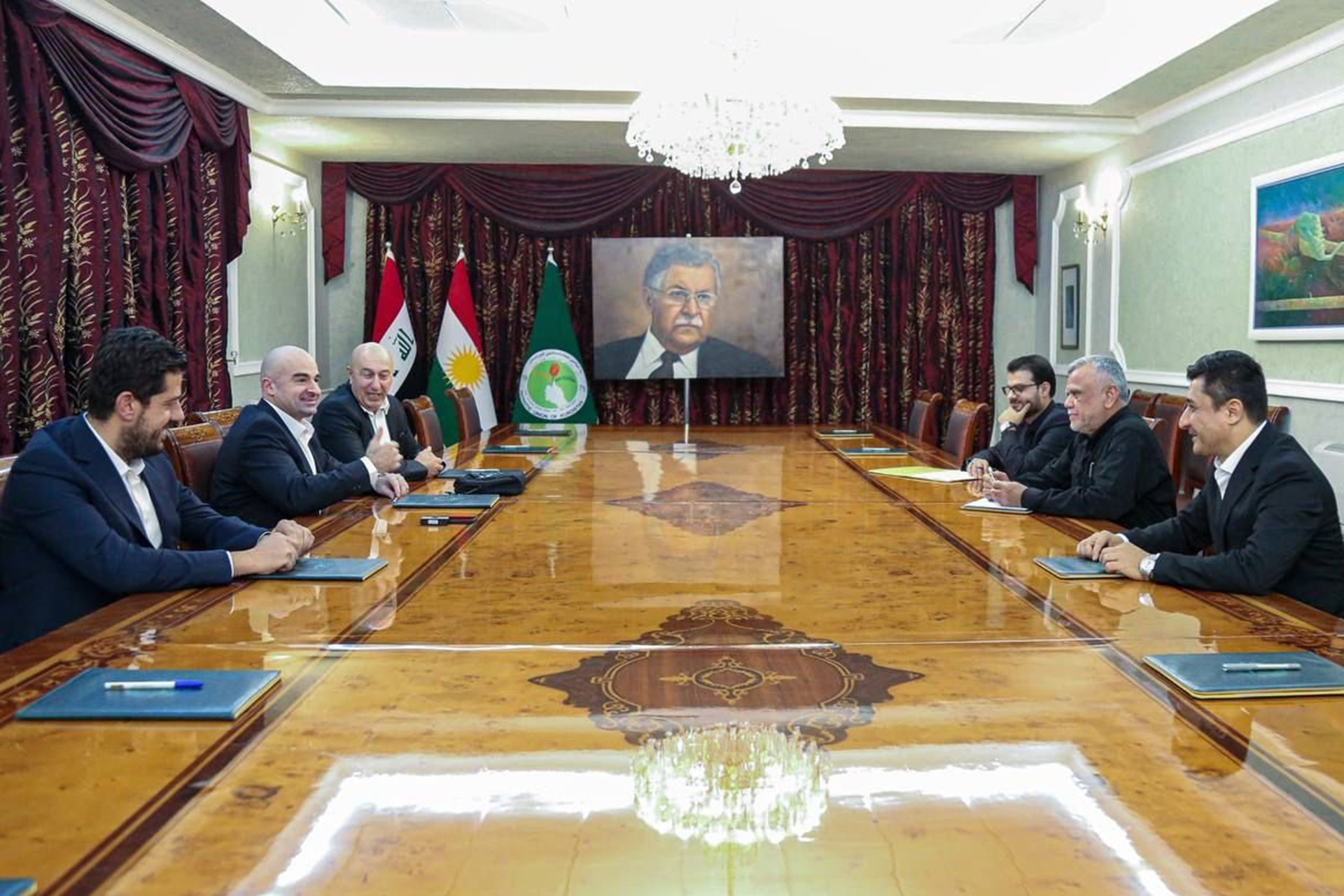Sources from Al-Jazeera's coordination framework said today, Monday, that the leader of the Al-Fateh Alliance Hadi Al-Amiri offered, during his visit to the Kurdistan region of Iraq, an initiative to get out of the political crisis that has hit Iraq and has escalated in recent days.
The sources added that the initiative presented by Al-Amiri during his meeting with Kurdish leaders in the cities of Erbil and Sulaymaniyah included proposals to be presented to the various political forces, especially the Sadrist movement.
According to the same sources, the initiative includes withdrawing the coordination framework of his candidate for prime minister, Muhammad Al-Sudani, in exchange for an agreement to end the work of the current caretaker government headed by Mustafa Al-Kazemi.
It also provides for the nomination of a new candidate for prime minister to be agreed upon later to form a new government whose task will be to prepare for early legislative elections, in addition to naming a new president of the republic.
The parties also pledge in advance to accept the results of the new elections, as stated in the initiative.
Al-Amiri arrived yesterday in Erbil at the head of a delegation from the Coordination Framework, and he met both the President of the Kurdistan Democratic Party, Masoud Barzani, and the President of the Kurdistan Regional Government, Masrour Barzani, as part of a movement aimed at ending the political crisis.
It was emphasized during the talks on dialogue to overcome the crisis.
After that, the leader of the Al-Fateh Alliance - one of the components of the coordination framework - went to Sulaymaniyah and met the President of the Patriotic Union of Kurdistan, Bafel Talabani, and leaders of other Kurdish parties.
For its part, the Iraqi News Agency quoted the representative of the Al-Fateh Alliance, Mueen Al-Kazemi, that Hadi Al-Amiri's visit to Iraqi Kurdistan aims to end the crisis through a comprehensive national dialogue.
Al-Kazemi said that Al-Amiri seeks calm and convergence of views between the political blocs, adding that the issue of early elections and the dissolution of Parliament is a national affair and is not limited to the coordination framework and the Sadrist movement.
After 10 months of parliamentary elections, Iraq is witnessing a state of political impasse following the failure of the winning political forces in the previous elections to form a government and elect a new president of the republic.
The coordination framework demands an end to the suspension of parliament and the formation of a new government, while the Sadrist movement demands the dissolution of parliament and the holding of early parliamentary elections.
continuous pressure
The news of an initiative to resolve the crisis comes while the coordination framework and the Sadrist movement continue to press across the street in order to respond to their demands.
The Sadrist movement called for organizing what it described as a million demonstration next Saturday in Tahrir Square in Baghdad, while the coordination framework mobilizes its supporters on the walls of the Green Zone, and is holding consultations to end the suspension of Parliament and expedite the formation of a new government.
The Sadrist movement had announced the filing of a lawsuit to the Federal Court against the three presidencies, the Republic, the ministers and Parliament, demanding the dissolution of Parliament.
The document of the lawsuit presented by the leader in the movement, Nassar al-Rubaie, showed the demand to dissolve parliament and oblige the President of the Republic to set a date for holding legislative elections in accordance with the provisions of Article 64 of the Iraqi constitution.
In this context, the head of the Supreme Judicial Council in Iraq, Faiq Zaidan, and the head of the United Nations mission in Iraq, Hennis Plasschaert, discussed today the role of the judiciary in addressing the problems related to the political crisis in the country, according to what was reported by the Iraqi News Agency.
The Supreme Judicial Council had said yesterday that it is not within its powers to dissolve the House of Representatives, and the Council confirmed that the tasks of the judiciary are limited to managing the judiciary only, calling on political and media bodies not to involve the judiciary in political rivalries and competitions.

